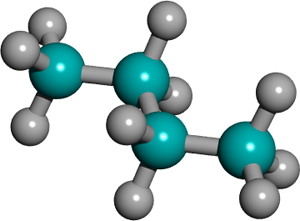The Difference Between Natural Gas and Its Derivatives
Nothing lasts forever, and while the future of traditional fossil fuels is in doubt, one thing is certain — the demand for energy grows. Technology has made it possible to extract natural gas in many ways never imagined, while the development of alternative fuels marches on at an ever increasing pace. At Butane Source, we promote a complete line of refined butane powered products. We also want to educate people about natural gas and how it can be utilized responsibly.
The Difference Between Natural Gas, Propane, N-Butane, and Isobutane
Part of that education process is helping people understand the differences between natural gas and its many derivatives, what their applications are, and safety tips to keep in mind when using each of them in different settings. Knowledge will not only help you select the proper refined butane for the task at hand, but also will create a sense of limitations and possibilities.
Natural Gas
Environmentally friendly, stable, simple to extract, and relatively inexpensive to refine–natural gas is one of the most important components in the world’s energy supply chain. While many kinds of “gas” are derived from crude oil and natural gas, the gasoline you put in your car or truck is far different than natural gas. How so? Gasoline, for instance, is liquid and also has a distinct color and odor. Natural gas, on the other hand, has none of those properties. Whether used to create fuel for products that require a butane refill, natural gas is unique among the world’s vast natural resources.
Created by millions of years of pressure thousands of feet beneath the earth’s surface, natural gas is clean burning and releases lower levels of byproducts into the atmosphere compared to other fossil fuels, making it ideal for products and applications requiring a portable gas based refill. Its composition includes methane (70 to 90 percent), ethane, propane, butane, carbon dioxide, oxygen, nitrogen, hydrogen sulphide, and other “rare gases”. It is widely used for home heating.
Propane
Propane is produced two ways: through natural gas processing, and crude oil refinement. Unlike natural gas, it is not made by the earth but is rather a byproduct of natural gas. When talking about differences with natural gas, the discussion usually revolves around things like energy versus cost, performance, storage, and risk factors.
Propane produces more energy per unit than natural gas, but is more expensive. Both propane and natural gas are widely used as alternative fuel sources for cars, trucks, buses, and other means of transportation, but propane — because of its natural properties — carries a greater risk of combusting because its heavier and can fall to the ground, while natural gas rises and can dissipate faster. It can even be used as a fuel source for a torch lighter.
N-Butane
 Known as a natural gas liquid, Newport butane also is derived from processing natural gas or refined petroleum. It is a flammable hydrocarbon, ideal for storage in compact devices such as disposable lighters and tanks for outdoor barbecue grills. N-butane also is referred to as “normal” butane. One of its most interesting characteristics is that it burns more cleanly and provides more energy than natural gas-derived propane, but does not perform well in conditions where the temperature has dropped below freezing.
Known as a natural gas liquid, Newport butane also is derived from processing natural gas or refined petroleum. It is a flammable hydrocarbon, ideal for storage in compact devices such as disposable lighters and tanks for outdoor barbecue grills. N-butane also is referred to as “normal” butane. One of its most interesting characteristics is that it burns more cleanly and provides more energy than natural gas-derived propane, but does not perform well in conditions where the temperature has dropped below freezing.
Unlike natural gas and other natural gas derived products, Power 5x butane only releases carbon dioxide as a waste gas, not the more dangerous carbon monoxide. It also requires more extensive refinement than natural gas before it can be used.
Isobutane
A methylpropane and another well known natural gas derivative, isobutane differs from natural gas because its use is much more widely restricted. While natural gas is used to create other gases and, therefore, types of energy or fuel sources, isobutane is widely used as a replacement for Freon in terms of refrigeration coolant for refrigerators and freezers.
If you use hair spray when getting ready for work, or grab cooking spray to layer a hot griddle before dropping pancake batter onto it, you may have used a product which uses isobutane. Isobutane is used in the preparation of aerosol sprays, primarily as the propellant for hair sprays and cooking sprays. It also is being used as a replacement for natural gas as a feedstock, or a type of raw material used in various industrial processes (think minerals, metals, timber, crude oil).
Many alternative fuels are expensive to manufacture and deploy, making efficient utilization of existing resources of paramount concern. Advances in technology has allowed companies to extract natural gas and its many derivatives and brand names such as Stok butane, propane, n-butane, and iso-butane efficiently and in a manner least disruptive to the environment, making them widely available and at an attractive price. For more information, contact the experts at Butane Source today.
